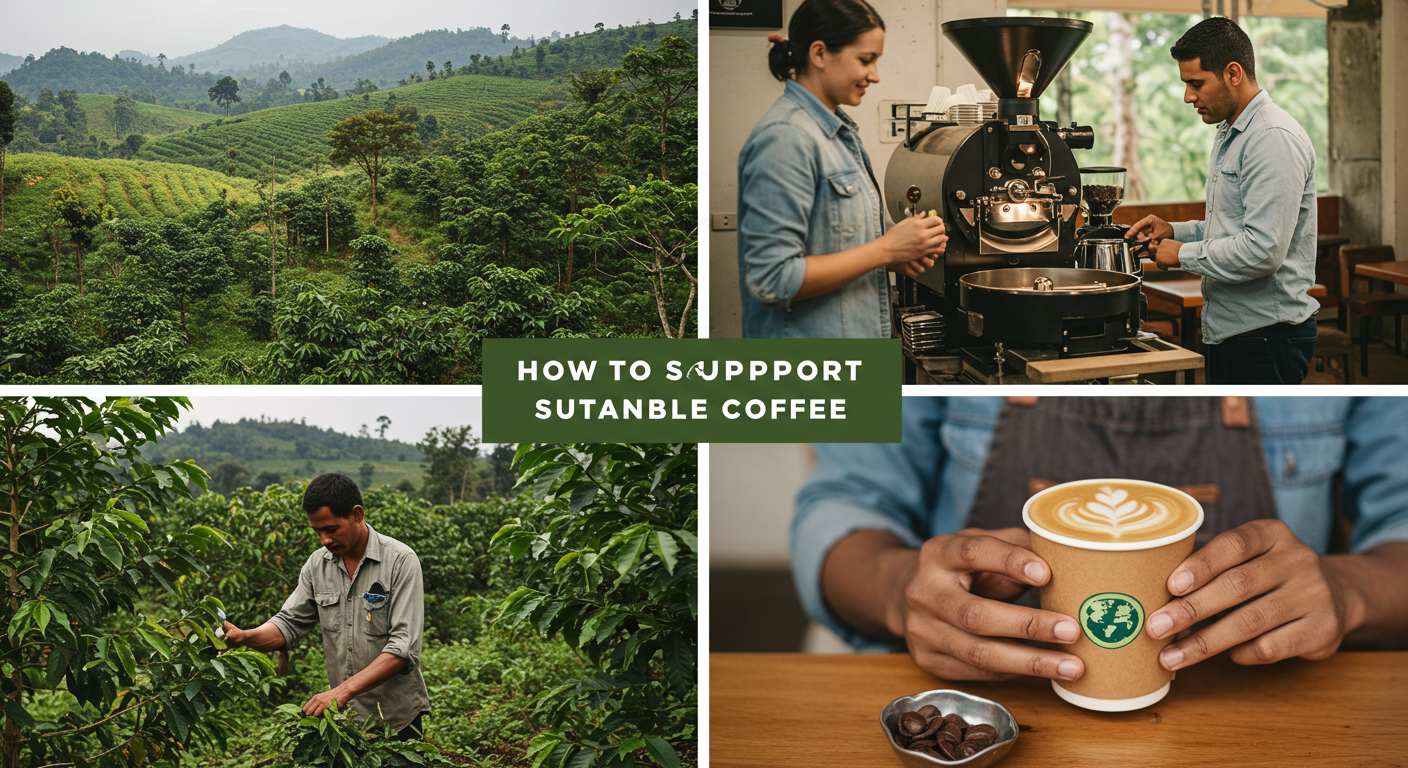For many of us, coffee is a beloved part of daily life. But behind every cup lies a global industry that has significant effects on the planet. As awareness grows, so does the movement toward more ethical and sustainable coffee.
In this article, we’ll explore the environmental impact of coffee production and how you — as a consumer — can make better choices to support a greener future.
Understanding the Impact of Coffee Farming
Coffee is grown in over 70 countries, mostly in tropical regions known as the “coffee belt.” Large-scale production can cause environmental damage in several ways:
1. Deforestation
To meet high demand, some farmers clear forests to grow coffee. This leads to:
- Loss of wildlife habitats
- Increased carbon emissions
- Soil erosion
Shade-grown coffee, which preserves forest cover, is a more sustainable alternative.
2. Pesticides and Chemicals
Conventional farming often relies on:
- Synthetic pesticides
- Chemical fertilizers
- Herbicides
These substances can contaminate water sources and harm local ecosystems.
3. Water Consumption and Pollution
Processing coffee requires large amounts of water. Without proper wastewater treatment, this can lead to:
- Contaminated rivers and streams
- Harm to aquatic life
- Health issues for local communities
4. Soil Degradation
Monoculture coffee farming drains nutrients from the soil, leading to:
- Reduced crop yields
- Need for more fertilizer
- Long-term damage to farmland
5. Carbon Footprint
From growing and harvesting to roasting and transporting, coffee’s lifecycle generates greenhouse gases. Packaging waste also contributes to the environmental toll.
What Is Sustainable Coffee?
Sustainable coffee refers to coffee that’s grown, processed, and traded in a way that reduces negative environmental and social impacts. It typically includes:
- Eco-friendly farming practices
- Fair labor conditions
- Efficient use of resources
- Minimal chemical use
- Preservation of biodiversity
Supporting sustainable coffee means supporting farmers who care for the earth and their communities.
Certifications to Look For
To help guide your purchases, look for these reputable certifications:
1. Rainforest Alliance Certified
- Promotes biodiversity and natural resource conservation
- Encourages safe and fair working conditions
2. Fair Trade Certified
- Ensures farmers are paid fairly
- Promotes community development and environmental standards
3. Organic Certified
- Grown without synthetic chemicals or GMOs
- Supports healthy ecosystems and soil
4. Bird-Friendly (Smithsonian Migratory Bird Center)
- Guarantees coffee is shade-grown in forested environments
- Protects bird habitats and biodiversity
These labels aren’t perfect, but they’re a strong starting point for making better choices.
How You Can Support Sustainability
Even small changes in your coffee habits can make a difference. Here’s how:
1. Buy Certified Sustainable Coffee
Support brands that partner with ethical farms and cooperatives.
2. Choose Reusable Coffee Gear
- Reusable filters
- Stainless steel or glass cups
- Avoiding single-use pods and plastic
3. Support Local Roasters
Many small roasters work directly with ethical farms and reduce transport emissions.
4. Compost Coffee Grounds
Used coffee grounds are great for your garden and reduce landfill waste.
5. Drink Less, Drink Better
Focus on quality over quantity. Fewer, better cups can reduce waste and encourage mindful consumption.
Sustainable Coffee Brands to Consider
Some widely recognized brands include:
- Allegro Coffee (Whole Foods)
- Equal Exchange
- Café Direct
- Counter Culture Coffee
- Stumptown Coffee Roasters
Always check for certifications or brand transparency about sourcing.
The Bigger Picture
Choosing sustainable coffee is about more than feeling good — it’s about investing in the future of our planet and its people.
When you make intentional choices, you support:
- Farmers who prioritize environmental care
- Practices that protect forests and clean water
- Better livelihoods for those at the heart of the supply chain
Brew with Purpose
Every time you fill your mug, you’re participating in a global chain of decisions. By choosing sustainable coffee, you help ensure that your favorite daily ritual supports not just flavor, but fairness and environmental responsibility.
So next time you shop for beans, take an extra moment to check the label. The planet (and your palate) will thank you.


